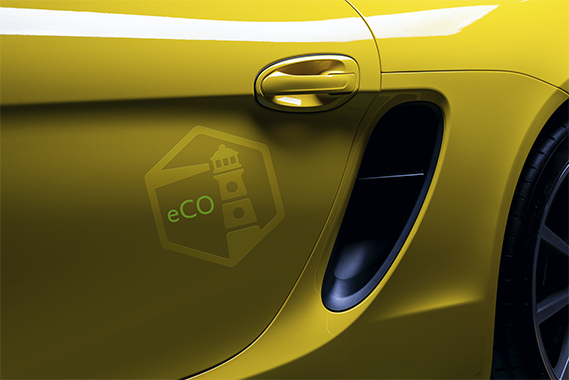More news
- Innovative coatings mitigate effects of deepening climate change
- Ask Joe Powder – October 2024
- Chinese paint majors look to domestic consumer sales as commercial real estate slumps
- Architectural coatings in Nepal and Bhutan
- A wild ride for U.S. construction and housing: Coatings and adhesives opportunities in 202...

- New eCO series helps to reduce CO2 emissions and enables more sustainable solvents, composites and coatings
- Independently certified mass balance accounting allows for cost efficient production process
- Drop-in solutions deliver the same exceptional product performance with no requirement for new product approvals
Since inventing isophorone chemistry during its search for new ways to reuse acetone, Evonik has continued to develop a variety of isophorone-based products at its plants across the globe. Now, 60 years later Evonik has made another important breakthrough for the chemical industry: the world’s first sustainable isophorone products made from 100% renewable acetone.
By using renewable acetone Evonik is now offering isophorone- based products with significantly lower CO2 footprint across all stages of the isophorone production chain. The new eCO products are available under the Evonik Crosslinkers well-known brand families; VESTASOL® IP eCO for isophorone, VESTAMIN® IPD eCO for isophorone diamine, and VESTANAT® IPDI eCO for isophorone diisocyanate. Further downstream products will be launched in line with future market demand.
"These latest renewable solutions are helping our customers to address today’s sustainability and environmental regulation challenges, plus our hard work is also paying off by opening up exciting new business opportunities for us,” said Christian Schmidt, Head of Evonik Crosslinkers business line.
Chemically identical to their fossil-based counterparts, Evonik’s new eCO series products have the same characteristics in terms of processing, formulation, and performance. In comparison to conventional isophorone products the new eCO products can help the industry to significantly reduce its Global Warming Potential (GWP) and CO2 footprint. For example, VESTANAT® IPDI eCO contains 75% renewable carbon per mass balance.
"The new VESTA eCO series is the first step on our journey to climate neutrality. As a next step, we will release an updated Life Cycle Analysis for our complete range/portfolio of I-Chain products during 2022, thus offering our customers reliable information on carbon footprints to give them a clear picture of their reduction options,” continued Christian Schmidt.
‘Mass Balance’ is an accounting principle that matches inputs with outputs from production process. Accounting ensures that sustainable end products match to the amount of renewable acetone purchased. The entire processes will be audited and certified by an independent body, namely the internationally recognised ISCC and REDCert standards to verify the use of renewable resources across all stages of production.
Based on strict bookkeeping and external auditing, the mass balance approach allows Evonik to adopt large-scale production and provide cost-effective solutions for its customers, while keeping track of each renewable molecule used.
Due to their mechanical strength, durability, chemical resistance, excellent adhesion and low CO2 emissions, the new VESTA eCO grades are designed to be used as sustainable raw materials in the production of paints, lacquers and binders for modern coating systems. They are also suitable for high-performance composite materials like rotor blades for wind turbines or in automotive interiors to produce higher quality instrument panels and trims as well as the latest chemical synthesis technologies.
For more detailed information about the new eCO series please visit evonik.com/vesta-eco



